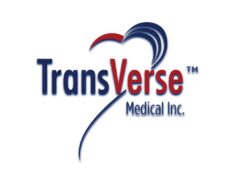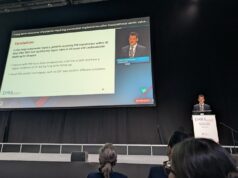
Data from 500 patients treated for aortic regurgitation with the Trilogy (JenaValve) transcatheter aortic valve implantation (TAVI) system, point towards positive safety and efficacy outcomes with the device, alongside favourable valve performance at up to two years.
The findings, presented during a late-breaking trial session at the 2025 American College of Cardiology (ACC) scientific session (29–30 March, Chicago, USA), build upon previous results from the trial’s first 180 patients, in which the device was shown to meet its safety and efficacy endpoints.
Design features of the Trilogy valve are intended to make it suitable for the dedicated treatment of aortic regurgitation and include locators that clip onto native leaflets and enable secure anchoring in the absence of calcium. These features may also help to facilitate commissural alignment which can be important when treating aortic stenosis, and the device also features large open cells that are designed to support future coronary access.
The trial—ALIGN-AR—enrolled 500 patients between 2018–2024, with 180 patients enrolled in a premarket approval cohort and 320 patients in a continued access cohort. All patients had moderate to severe symptomatic aortic regurgitation and underwent TAVI with the Trilogy valve. To date, about 360 patients have at least one year of follow-up after their procedure and 200 have about two years of follow-up. Data from the investigational device exemption (IDE) study are intended to support US Food and Drug Administration (FDA) approval for the device.
Reporting the latest data at ACC 2025, Raj Makkar (Cedars-Sinai, Los Angeles, USA), commented: “Once approved [Trilogy] will actually provide a new and a much-needed therapeutic option for those who have aortic regurgitation and are high risk for surgery.”
The trial’s primary endpoint was mortality at one year, with a prespecified threshold of 75% survival or better indicating that the valve is not inferior to outcomes that would be expected in the absence of a valve replacement. With an overall survival rate of 91.9% at one year, the trial met and exceeded this endpoint.
The study reported a device success rate of 96.4% and low rates of residual regurgitation, with only 1.5% of patients experiencing more than mild regurgitation at 30 days and valve embolisation noted in only 1.6%. The 30-day mortality rates were also lower in the continued access cohort (0.9%) compared to the initial premarket approval cohort (2.2%), likely due to a combination of improved patient selection and procedural improvements over time.
Furthermore, Makkar reported that there was evidence of the device having a favourable impact on left ventricular (LV) valve remodelling, demonstrated by reduced LV end systolic volumes, from 38.4 ml/m2 at baseline to 30.5 ml/m2 at two years, and decreased LV mass, from 152.3 g/m2 to 114.3 g/m2. Around 23% of patients required a new pacemaker, with further analysis ongoing to understand the underlying causes and potential mitigating factors, Makkar said.
Further study of the Trilogy valve is set to commence with the initiation of the ARTIST trial, which is due to begin enrolment shortly. The ARTIST trial is a randomised study comparing TAVI with Trilogy to surgical aortic valve replacement (SAVR) in non-high-risk patients with severe and moderate-to-severe aortic regurgitation.













